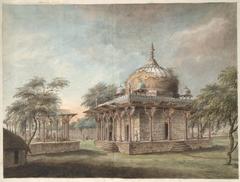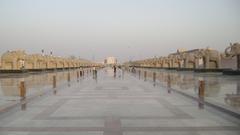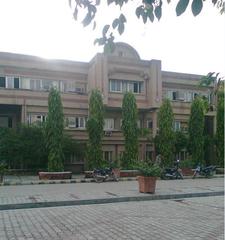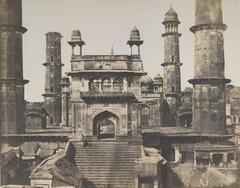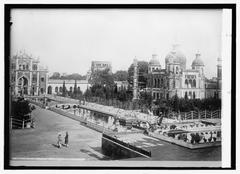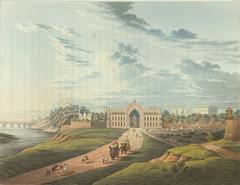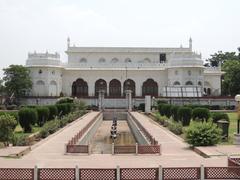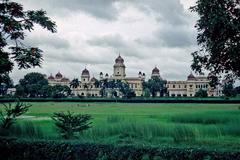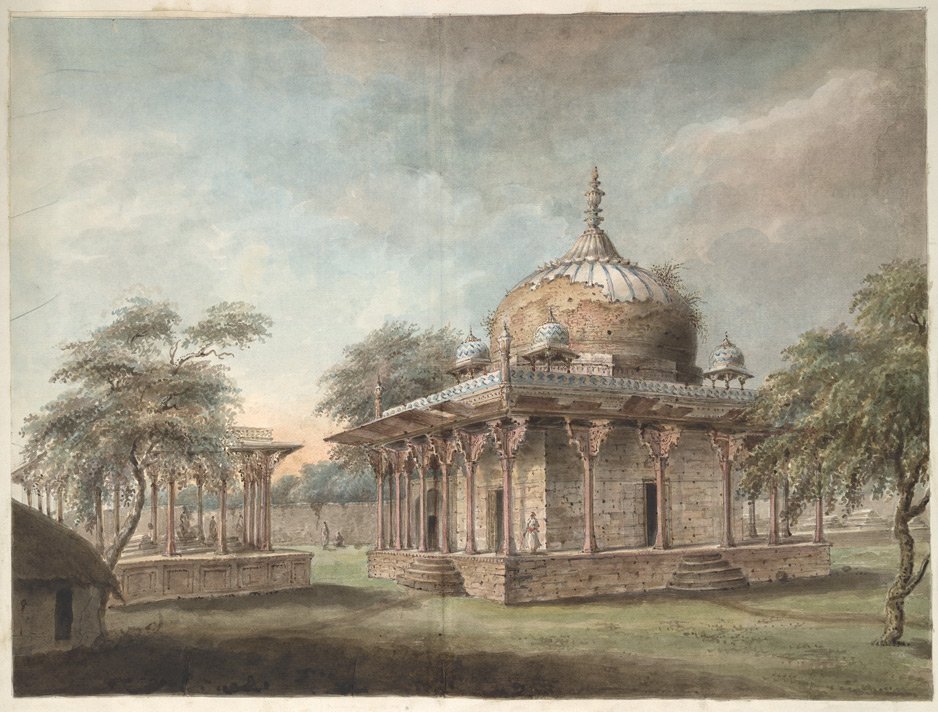
Visiting Nadan Mahal: History, Tickets, and Tips
Publication Date: 18/08/2024
Introduction to Nadan Mahal
Nadan Mahal, also known as the ‘Deliverance Tomb,’ is a hidden gem in the vibrant city of Lucknow, India. This historical monument, dating back to the Mughal era, offers a serene and tranquil environment away from the bustling city life. Nadan Mahal is dedicated to Sheikh Ibrahim Chishti, the first governor of Lucknow under the rule of Mughal Emperor Akbar. Known for his significant contributions to governance and spiritual life, Sheikh Ibrahim Chishti’s legacy is immortalized in this exquisite mausoleum. Despite its historical importance, Nadan Mahal remains relatively low-key among tourists, making it a perfect spot for those interested in exploring lesser-known historical sites. This comprehensive guide aims to provide you with all the essential information about Nadan Mahal, from its rich history and architectural marvels to practical visitor tips and nearby attractions, ensuring you have an enriching experience. (Lucknow Tourism, Classy Nomad - Tourist Places in Lucknow, Wanderon - Travel Tips for Lucknow).
Contents Overview
- Introduction
- History and Significance
- Historical Background
- Architectural Significance
- Cultural and Religious Significance
- Preservation and Current State
- Visitor Information
- Visiting Hours and Tickets
- Accessibility
- Travel Tips
- Visitor Experience
- Nearby Attractions
- FAQ
- Conclusion
History and Significance
Historical Background
Nadan Mahal is a significant historical monument in Lucknow, India. This mausoleum dates back to the Mughal era and is dedicated to Sheikh Ibrahim Chishti, the first governor of Lucknow under the rule of Mughal Emperor Akbar. Sheikh Ibrahim Chishti was a revered saint and a prominent figure during Akbar’s reign. His contributions to the region’s governance and spiritual life have left a lasting legacy, immortalized in the form of Nadan Mahal.
The mausoleum is one of the oldest surviving structures in Lucknow, standing as a testament to the city’s rich historical and cultural heritage. Despite its historical significance, Nadan Mahal remains relatively low-key among tourists, offering a serene and tranquil environment away from the bustling city life.
Architectural Significance
Nadan Mahal is an exquisite example of Mughal architecture, characterized by its intricate design and detailed craftsmanship. The structure features panelled and recessed bays that are enclosed on all sides, a common architectural element in Mughal-era buildings. The main entrance to the chamber is located on the south side and is adorned with a large stone tablet inscribed with three Persian couplets in Nastaliq script. This entrance alone is a marvel, showcasing the artistic prowess of the Mughal artisans.
The dome of the mausoleum is another architectural highlight. It is adorned with a lotus finial and rests on an octagonal drum, which is decorated with vibrant blue and green tiles. These elements not only enhance the aesthetic appeal of the structure but also reflect the Mughal’s penchant for incorporating natural motifs and vibrant colors into their architectural designs.
Cultural and Religious Significance
Nadan Mahal holds immense cultural and religious significance, particularly for the followers of Sheikh Ibrahim Chishti. After his death, his followers would visit the tomb regularly to pray for his deliverance, a practice that led to the mausoleum being named ‘Nadan Mahal’ or ‘Deliverance Tomb.’ This tradition underscores the deep spiritual connection that the local community has with Sheikh Ibrahim Chishti and his teachings.
The mausoleum is situated in a park complex in the old city of Lucknow, which also houses two other enclosed tombs. One of these tombs contains the remains of Sheikh Ibrahim Chishti, making it a site of pilgrimage for his followers. The serene environment of the park adds to the spiritual ambiance of the place, making it a perfect spot for reflection and prayer.
Preservation and Current State
Despite its historical and cultural significance, Nadan Mahal has not received the same level of attention and preservation efforts as other monuments in Lucknow. The structure stands as a link between its majestic past and an abandoned present, reflecting the challenges of preserving historical monuments in a rapidly modernizing city. However, its relatively low profile among tourists has also helped in maintaining its tranquility and serenity, making it a hidden gem for those who seek to explore the lesser-known aspects of Lucknow’s history.
Visitor Information
Visiting Hours and Tickets
Nadan Mahal is located in a public park, which is open to visitors from 6 AM to 10 PM every day. There is no entry fee, making it accessible to all.
Accessibility
The mausoleum is easily accessible by public transport and private vehicles. Parking facilities are available nearby. While the main pathways are generally accessible, visitors with mobility issues may find some areas challenging due to uneven terrain.
Travel Tips
For the best experience, visit Nadan Mahal in the early morning or late afternoon to avoid the midday heat. Wear comfortable clothing and bring water, as amenities within the park are limited. The serene environment makes it a great spot for photography, so don’t forget your camera.
Visitor Experience
Visiting Nadan Mahal offers a unique experience, allowing tourists to step back in time and immerse themselves in the rich history and culture of the Mughal era. The park complex, with its lush greenery and serene environment, provides a perfect backdrop for the mausoleum. Visitors can explore the three structures within the park, including the two enclosed tombs. The main tomb, containing the remains of Sheikh Ibrahim Chishti, is a focal point for those interested in the spiritual and religious history of the region.
Nearby Attractions
Nadan Mahal is located in the old city of Lucknow, which is home to several other historical and cultural landmarks. After exploring Nadan Mahal, visitors can easily visit nearby attractions such as the Bara Imambara, Chota Imambara, and the Rumi Darwaza. These sites offer a deeper insight into the architectural and cultural heritage of Lucknow, making for a comprehensive and enriching travel experience.
FAQ
Q: What are the visiting hours of Nadan Mahal?
A: Nadan Mahal is open to visitors from 6 AM to 10 PM every day.
Q: Do you need tickets to visit Nadan Mahal?
A: No, there is no entry fee to visit Nadan Mahal.
Q: What are the best times to visit Nadan Mahal?
A: The best times to visit are early morning or late afternoon to avoid the midday heat.
Conclusion
Nadan Mahal stands as a silent witness to the rich history and cultural heritage of Lucknow. Its architectural beauty, coupled with its spiritual significance, makes it a must-visit for those interested in exploring the lesser-known aspects of the city’s past. Despite its relatively low profile among tourists, Nadan Mahal offers a unique and tranquil experience, allowing visitors to connect with the history and spirituality of the Mughal era.
Call to Action
Explore more about the rich cultural heritage of Lucknow by downloading the Audiala app, checking out other related posts, or following us on social media for more updates.
Visuals and Media
External Links
For more detailed guides and official information, visit Lucknow Tourism.
